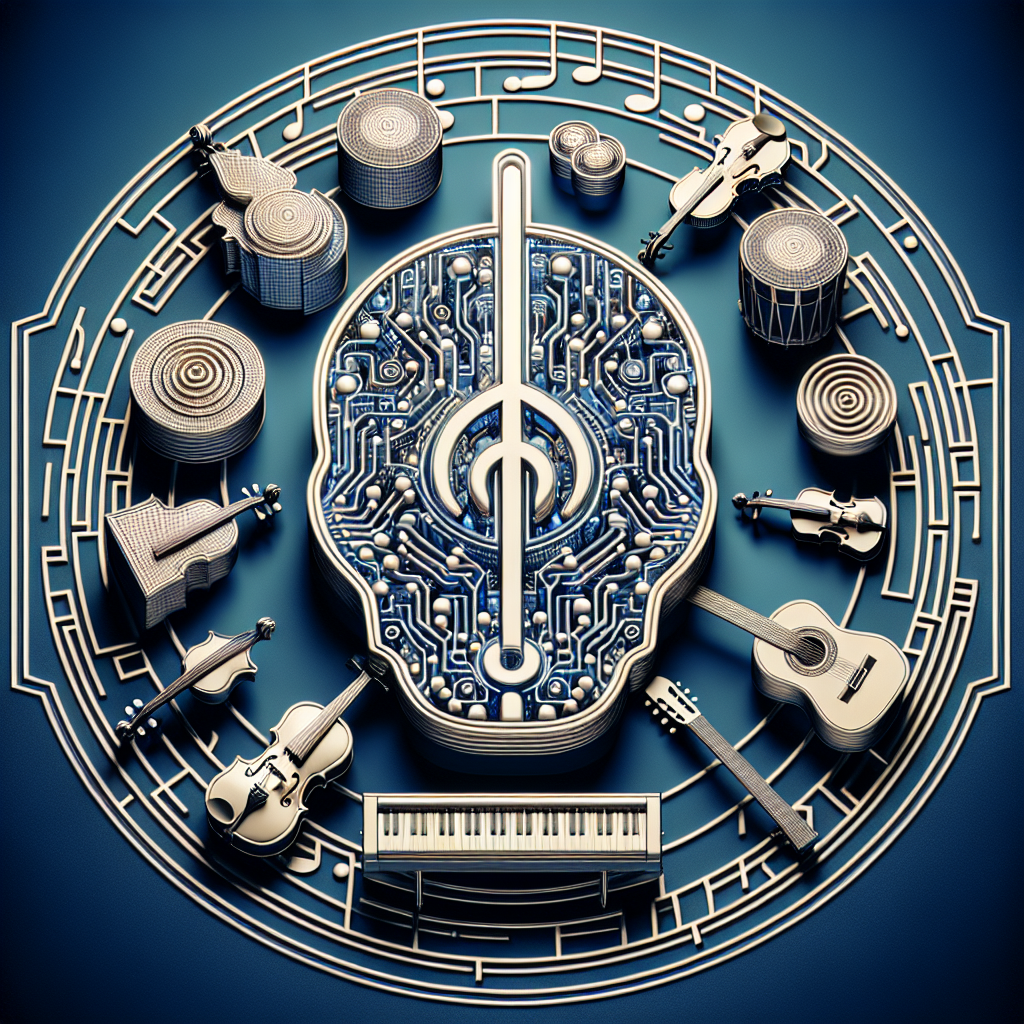Navigating Copyright Issues in AI-Generated Music
As artificial intelligence technology continues to advance, the creation of music using AI algorithms has become more prevalent. AI-generated music can be used in a variety of ways, from creating background music for videos to producing entire albums. However, the use of AI in music creation raises important copyright issues that must be navigated carefully to avoid legal pitfalls.
Copyright Basics
Before delving into the specific copyright issues related to AI-generated music, it is important to understand the basics of copyright law. Copyright protects original works of authorship, including music, from being used or reproduced without permission. In the case of music, copyright protects both the composition (the underlying musical notes and lyrics) and the sound recording (the actual recording of the music).
When it comes to AI-generated music, the question of who owns the copyright can become complicated. In traditional music creation, the copyright is typically owned by the composer or songwriter. However, when AI is involved in the music creation process, the lines can blur. In some cases, the copyright may be owned by the creator of the AI algorithm, while in others, it may be owned by the person who inputs the data into the AI system.
Determining Ownership
One of the key copyright issues in AI-generated music is determining who owns the copyright. In some cases, the AI system itself may be considered the author of the music, which would mean that the copyright is owned by the creator of the AI algorithm. In other cases, the person who inputs the data into the AI system may be considered the author, which would mean that they own the copyright.
To determine ownership, it is important to consider the level of human input involved in the creation of the music. If the AI system is simply generating random music without any human input, then the copyright may be owned by the creator of the AI algorithm. However, if the person inputting the data into the AI system is making creative decisions that influence the final output, then they may be considered the author and own the copyright.
Licensing and Permissions
Once ownership of the copyright is determined, the next step is to consider licensing and permissions. If you are using AI-generated music in your own projects, it is important to ensure that you have the necessary permissions to use the music. This may involve obtaining a license from the copyright owner or using music that is licensed under a Creative Commons or similar license.
If you are the creator of AI-generated music, it is important to consider how you want others to use your music. You may choose to release your music under a Creative Commons license that allows for non-commercial use with proper attribution, or you may choose to retain all rights and only allow others to use your music with a license.
Fair Use
Another important copyright issue to consider when using AI-generated music is fair use. Fair use is a legal doctrine that allows for the limited use of copyrighted material without permission for purposes such as criticism, comment, news reporting, teaching, scholarship, or research. When using AI-generated music, it is important to consider whether your use falls under the fair use doctrine.
Factors to consider when determining fair use include the purpose and character of the use, the nature of the copyrighted work, the amount and substantiality of the portion used, and the effect of the use on the potential market for the copyrighted work. If your use of AI-generated music falls under fair use, you may not need to obtain permission from the copyright owner.
FAQs
Q: Can I use AI-generated music in my YouTube videos without permission?
A: It depends on the ownership of the copyright. If the copyright is owned by the creator of the AI algorithm, you will need to obtain permission to use the music in your videos. If the copyright is owned by the person who input the data into the AI system, you may be able to use the music without permission, depending on the terms of their license.
Q: Can I sell AI-generated music that I create?
A: Again, it depends on the ownership of the copyright. If you are the creator of the AI algorithm, you may be able to sell the music that is generated by the AI system. If you are not the creator of the AI algorithm, you will need to obtain permission from the copyright owner to sell the music.
Q: How can I protect my AI-generated music from being used without permission?
A: To protect your AI-generated music, you can consider releasing it under a Creative Commons license that specifies how others can use the music. You can also register your music with the U.S. Copyright Office to establish a public record of your ownership of the copyright.
In conclusion, navigating copyright issues in AI-generated music requires careful consideration of ownership, licensing, permissions, fair use, and other legal factors. By understanding the basics of copyright law and taking proactive steps to protect your music, you can ensure that you are using AI-generated music in a legal and ethical manner.

